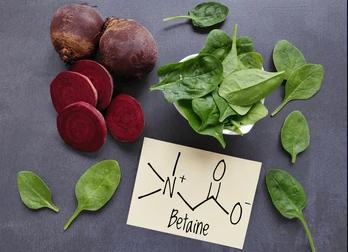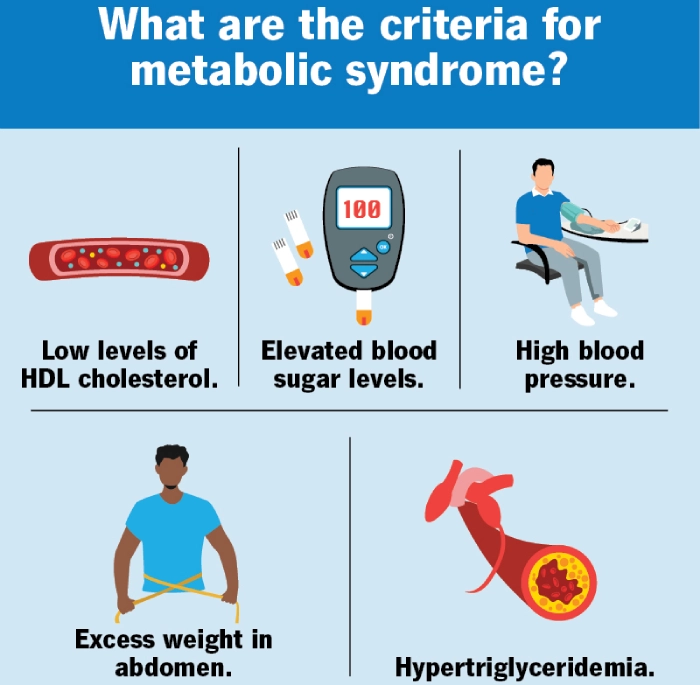When it comes to digestive health, most people immediately think about probiotics or fiber supplements. However, there’s an unsung hero in the world of digestive wellness that deserves your attention – betaine hydrochloride. As someone who has spent years researching and writing about health products, I’ve witnessed countless success stories that highlight the transformative power of this supplement. In this comprehensive guide, I’ll share everything you need to know about betaine hydrochloride, from its fundamental benefits to practical usage tips that can help optimize your digestive health.

Understanding Betaine Hydrochloride: More Than Just Stomach Acid
Betaine hydrochloride represents a fascinating intersection of digestive science and supplementation. While many people focus on reducing stomach acid, particularly through popular medications like proton pump inhibitors, the reality is that insufficient stomach acid can be just as problematic as having too much. Think of betaine hydrochloride as your stomach’s personal assistant – it steps in when your natural acid production needs reinforcement, helping to maintain the delicate balance necessary for optimal digestion. This supplement is particularly relevant today, as studies suggest that about 30% of adults over 60 experience hypochlorhydria (low stomach acid), though this condition can affect people of all ages.
The Science Behind Betaine HCl Benefits: A Deeper Dive
The benefits of betaine hydrochloride extend far beyond basic digestion. When you consume protein-rich foods, your stomach needs adequate acid levels to break down these complex molecules into usable nutrients. Without sufficient acid, you might experience bloating, nutrient deficiencies, and that uncomfortable “brick in the stomach” feeling after meals. Betaine hydrochloride helps optimize this process by providing the acidic environment necessary for proper protein digestion. Additionally, this supplement plays a crucial role in mineral absorption, particularly for iron and vitamin B12, two nutrients that many people struggle to maintain at optimal levels.
Understanding Acid Reflux and the Betaine Hydrochloride Connection
Here’s something that might surprise you: while it seems counterintuitive, betaine hydrochloride for acid reflux can be remarkably effective. Many cases of acid reflux actually stem from insufficient stomach acid rather than excess acid. When stomach acid levels are too low, the lower esophageal sphincter (the valve that keeps stomach contents where they belong) may not receive the proper signals to close tightly. This can lead to acid reflux symptoms even though the root cause is actually low stomach acid. By supplementing with betaine hydrochloride, many people find relief from their GERD symptoms, though it’s essential to work with a healthcare provider to determine if this approach is right for you.
Optimizing Your Betaine Hydrochloride Dosage: A Personalized Approach
When it comes to determining the right betaine hydrochloride dosage, there’s no one-size-fits-all solution. Your optimal dose depends on various factors, including your age, current digestive health, and the size and composition of your meals. Most healthcare practitioners recommend starting with a modest dose of 350-600mg with protein-containing meals. Here’s what makes this approach particularly effective: by starting low, you give your body time to adjust and can carefully monitor your response. Some people might need multiple capsules per meal, while others find relief with a single capsule. The key is to pay attention to your body’s signals and adjust accordingly. I’ve seen clients who needed to gradually work up to 700mg per meal, while others found their sweet spot at just 500mg.
The Role of Betaine HCl in Protein Digestion and Nutrient Absorption
Let’s dive deeper into how betaine hydrochloride supplements actually work in your digestive system. When you consume protein, whether it’s from a juicy steak or a plant-based source, your stomach needs to create an acidic environment with a pH between 1.5 and 3.0 to activate pepsin, the primary protein-digesting enzyme. Without adequate stomach acid, protein molecules remain partially undigested, leading to various issues including nutrient deficiencies and digestive discomfort. This is where betaine hydrochloride steps in – it helps create and maintain that optimal acidic environment. Moreover, this acidic environment is crucial for the absorption of minerals like iron, calcium, and zinc. Studies have shown that people with low stomach acid often struggle with iron-deficiency anemia and B12 deficiency, even when consuming adequate amounts of these nutrients in their diet.
Natural Sources and Complementary Approaches: Beyond Betaine Hydrochloride Supplements
While betaine hydrochloride supplements are valuable tools, it’s worth exploring natural sources of betaine and complementary approaches to digestive health. Betaine hydrochloride rich foods include quinoa, beets, spinach, and wheat bran. However, it’s important to note that these foods contain betaine, not betaine hydrochloride specifically. To maximize your digestive health, consider combining these foods with other digestive-supporting practices. For instance, many of my clients find success by implementing mindful eating practices, thoroughly chewing their food (aim for 20-30 chews per bite), avoiding drinking large amounts of water during meals (which can dilute stomach acid), and incorporating bitter herbs before meals to stimulate natural acid production. This holistic approach, combined with appropriate supplementation, often yields the best results.
Side Effects and Safety Considerations: What You Really Need to Know
Understanding potential betaine hydrochloride side effects is crucial for safe supplementation. While this supplement is generally well-tolerated, some people might experience a warming sensation in their stomach, which isn’t necessarily negative – in fact, it can be a useful indicator for finding your optimal dose. If you feel a warm, mild burning sensation, it typically means you’ve taken too much for your current needs. Other potential side effects include heartburn, digestive discomfort, and rarely, stomach upset. However, these effects are usually dose-dependent and can be avoided by starting with a lower dose and gradually increasing as needed. It’s particularly important to note that betaine HCl supplements should be avoided if you have stomach ulcers, gastritis, or are taking NSAIDs or other medications that can irritate the stomach lining. Always consult with a healthcare provider before starting any new supplement regimen, especially if you have underlying health conditions or are taking medications.
Standard Process and Quality Considerations: Choosing the Right Supplement
When it comes to betaine hydrochloride supplements, quality matters significantly. Standard Process betaine hydrochloride has earned a reputation for excellence in this space, thanks to their rigorous quality control processes and commitment to purity. However, they’re not the only reputable manufacturer in the market. When selecting a betaine hydrochloride supplement, look for products that undergo third-party testing, are free from unnecessary fillers and additives, and come from manufacturers with Good Manufacturing Practice (GMP) certification. The price point shouldn’t be your primary consideration – remember, you’re investing in your health, and quality supplements often provide better results and greater safety assurances. Many of my clients have found that investing in a high-quality betaine hydrochloride supplement actually saves money in the long run by improving nutrient absorption and reducing the need for other digestive aids.
Real-World Success Stories: Transforming Digestive Health with Betaine HCl
The true power of betaine hydrochloride becomes evident when you look at real-world experiences. Take Sandy, a 41-year-old marketing executive who struggled with persistent bloating and post-meal discomfort for years. Despite trying various elimination diets and probiotics, her symptoms persisted until she discovered betaine hydrochloride supplements. “The transformation was remarkable,” she shares. “Within three weeks of starting betaine HCl, I could enjoy meals without the constant fear of bloating and discomfort.” Another inspiring case is Mikes, a 62-year-old retiree who had been dealing with chronic fatigue and unexplained nutrient deficiencies. After working with a functional medicine practitioner who identified low stomach acid as the root cause, he started supplementing with betaine hydrochloride. Six months later, his B12 and iron levels normalized, and his energy levels significantly improved. These stories aren’t unique – they represent thousands of individuals who have found relief through proper betaine hydrochloride supplementation.
The Science of Timing: How to Take Betaine Hydrochloride for Optimal Results
The timing of your betaine hydrochloride supplementation can significantly impact its effectiveness. Based on extensive clinical experience and research, the most effective approach is to take the supplement at the beginning of protein-containing meals. Here’s why this timing matters: your body needs to establish the proper acidic environment before the digestive process begins in earnest. Taking the supplement too early or too late can reduce its effectiveness. I recommend taking betaine HCl right after your first few bites of food – this allows for optimal integration with your natural digestive processes. For larger meals or those higher in protein, you might need to adjust your dosage accordingly. Some practitioners suggest taking additional capsules midway through large meals, particularly if you’re still building up to your optimal dosage.
Advanced Protocols: Combining Betaine HCl with Other Digestive Supports
While betaine hydrochloride can be effective on its own, many practitioners, including myself, have seen enhanced results when it’s part of a comprehensive digestive support protocol. For instance, combining betaine hydrochloride with pepsin (a protein-digesting enzyme) can enhance its effectiveness, as the two work synergistically. Some quality supplements already include this combination. Additionally, incorporating digestive bitters, zinc carnosine for gut lining support, and specific probiotic strains can create a more robust digestive health protocol. However, it’s crucial to introduce these elements gradually and systematically to identify what works best for your unique situation. I’ve seen too many people throw everything at their digestive issues at once, making it impossible to determine what’s actually helping.
Special Considerations for Different Age Groups and Health Conditions
The approach to betaine hydrochloride supplementation often needs to be tailored based on age and existing health conditions. For instance, older adults typically need more support with stomach acid production, as natural production tends to decline with age. However, they might also need to start with lower doses and increase more gradually. Athletes and highly active individuals might require higher doses to support their increased protein needs and maintain optimal nutrient absorption. Those with autoimmune conditions often benefit from betaine HCl supplementation as part of a broader gut health protocol, but they need careful monitoring and potential adjustments to their supplementation strategy. Pregnant women and those with specific medical conditions should always consult healthcare providers before starting betaine hydrochloride supplements.

Looking Ahead: The Future of Digestive Health and Betaine HCl Research
The field of digestive health is continuously evolving, and new research on betaine hydrochloride is emerging regularly. Recent studies are exploring its potential benefits beyond basic digestion, including its role in supporting the immune system and maintaining a healthy gut microbiome. Preliminary research suggests that adequate stomach acid levels, which can be supported through betaine hydrochloride supplementation, may help prevent the overgrowth of potentially harmful bacteria in the upper digestive tract. Additionally, researchers are investigating the connection between proper stomach acid levels and various aspects of health, from nutrient absorption to cognitive function. As our understanding of the gut-brain axis continues to expand, the importance of optimal digestive function – and the role of supplements like betaine hydrochloride – becomes increasingly clear.
Making the Most of Your Betaine Hydrochloride Journey: Final Thoughts and Recommendations
As we’ve explored throughout this comprehensive guide, betaine hydrochloride represents a powerful tool in the quest for optimal digestive health. From supporting proper protein digestion to enhancing nutrient absorption, its benefits extend far beyond basic stomach acid supplementation. If you’re considering betaine hydrochloride supplements, remember these key takeaways:
Start Smart, Go Slow
Begin with a modest dose and gradually increase based on your body’s response. Remember, the goal is to support your natural digestive processes, not override them. Pay attention to how your body responds and adjust accordingly. Those warm sensations we discussed? They’re your body’s way of communicating – listen to these signals.
Quality Matters
Whether you choose Standard Process betaine hydrochloride or another reputable brand, invest in quality supplements. Your digestive health is worth the investment, and higher-quality products often provide better results with fewer side effects.
The Bigger Picture
Remember that betaine hydrochloride is just one piece of the digestive health puzzle. Combine it with proper eating habits, stress management, and an overall healthy lifestyle for the best results. Consider working with a qualified healthcare provider who can help you develop a comprehensive approach to digestive wellness.
Listen to Your Body
Every person’s digestive needs are unique. What works perfectly for one person might need adjustment for another. Don’t be afraid to fine-tune your approach based on your body’s responses and needs.
Final Words of Encouragement
As someone who has researched and written about health for many years, I can’t emphasize enough how important it is to address digestive issues proactively. Whether you’re just starting your journey with betaine hydrochloride or looking to optimize your current protocol, remember that patience and consistency are key. The path to optimal digestive health might take time, but the benefits – from improved nutrient absorption to better overall well-being – are well worth the effort.
Have questions about your betaine hydrochloride journey? Remember that while this guide provides a comprehensive overview, working with a qualified healthcare provider can help you develop a personalized approach that best suits your unique needs. Here’s to your continued journey toward optimal digestive health!
Your Next Steps
1. Consult with a healthcare provider about incorporating betaine hydrochloride supplements into your routine
2. Start with a quality supplement at a conservative dose
3. Monitor your body’s response and adjust as needed
4. Keep a symptom journal to track your progress
5. Stay patient and consistent with your approach
Remember, investing in your digestive health is investing in your overall well-being. With the right approach and proper support, betaine hydrochloride can be a valuable tool in your journey to better health.



